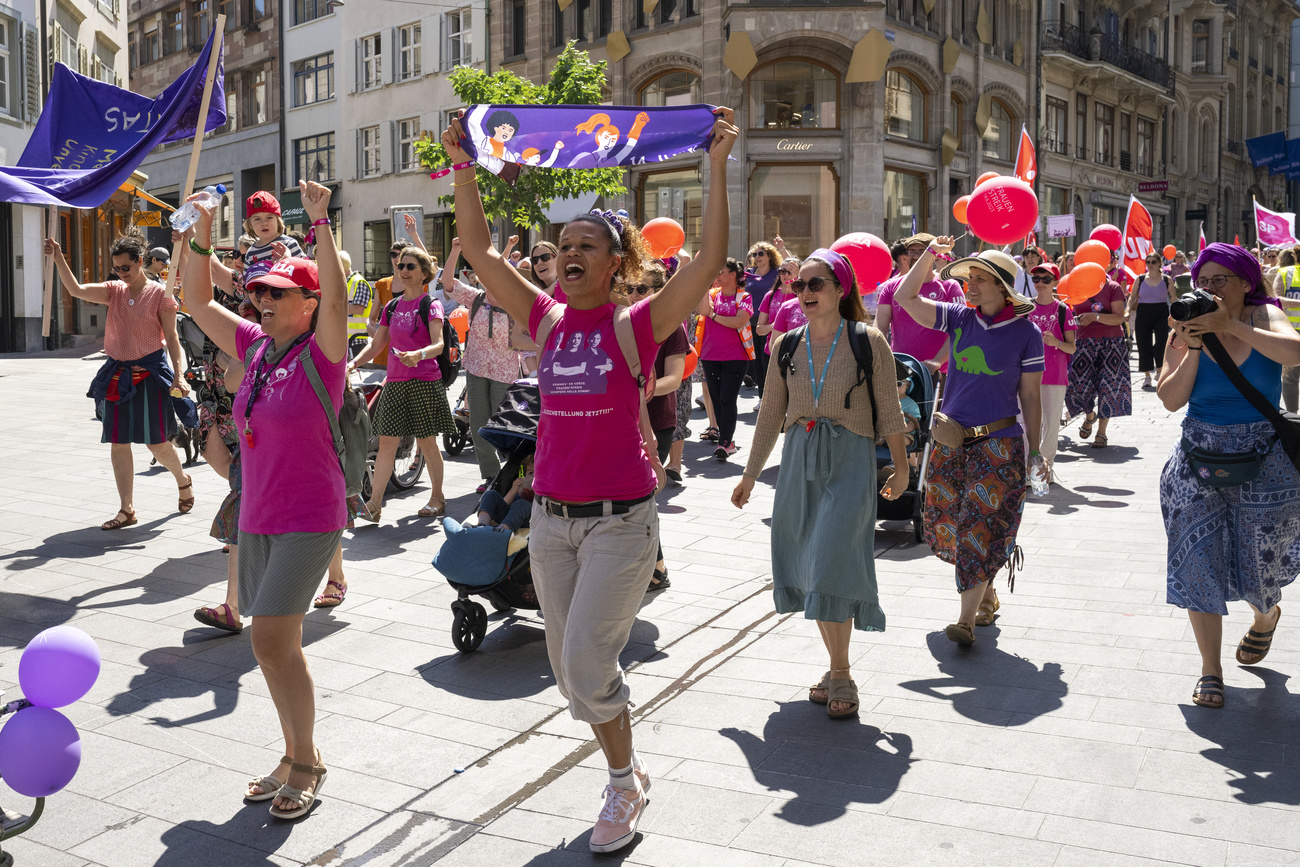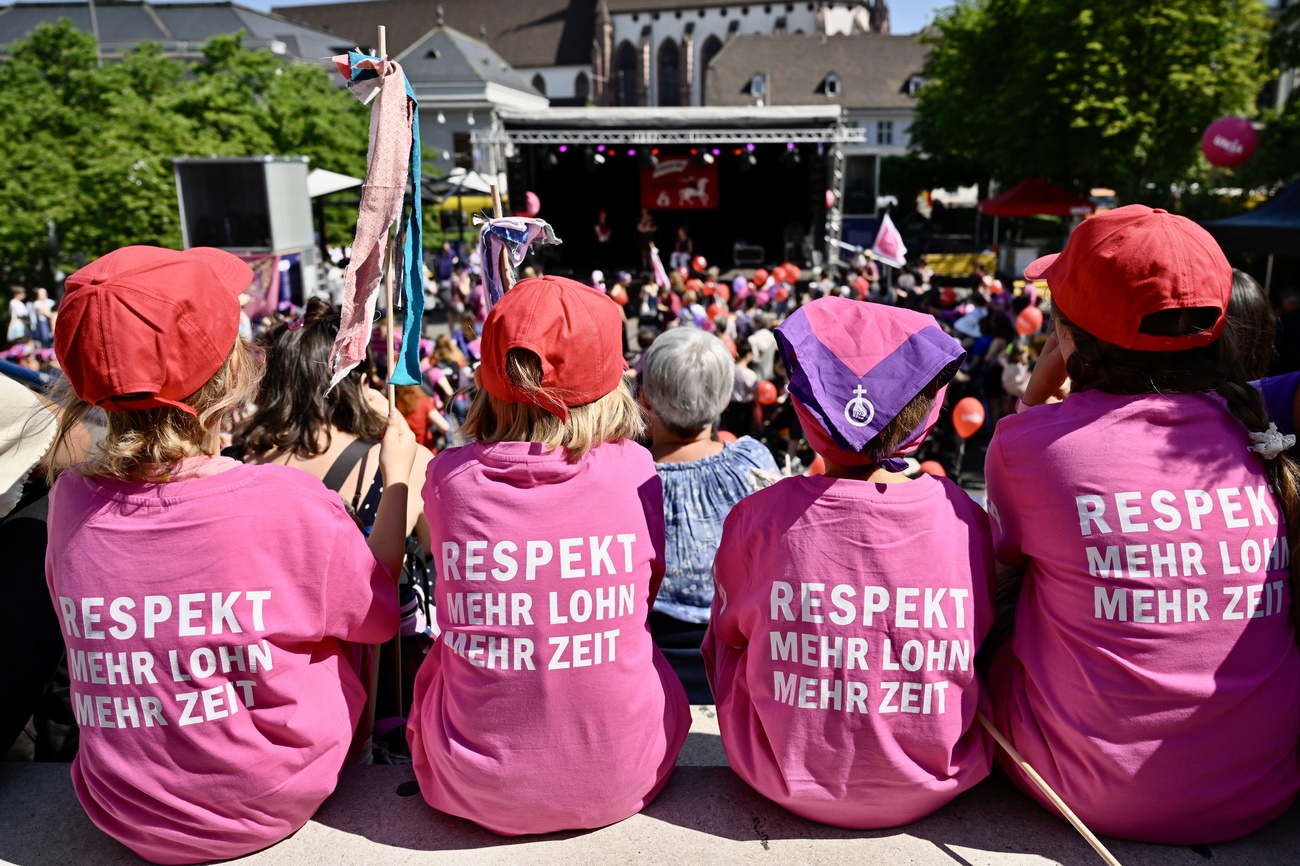
Swiss women take to streets to fight inequality and sexism

Over 300,000 women, children and other protesters took part in a national strike in major towns and cities across Switzerland on Wednesday demanding equal pay.
Big rallies and numerous events were heldExternal link on the hot summer day in Basel, Bern, Zurich, Lucerne, St Gallen, Lausanne and Geneva. The Swiss Trade Union Federation said over 300,000 people took part across the country.
The gender pay gap was one of the key demands at this year’s women’s strike, officially rebranded as Feminist StrikeExternal link, along with a protest of other forms of discrimination and harassment in the workplace.
The Swiss Trade Union Federation says women took home 43% less income than men on average last year. Some of this discrepancy can be explained by more women working part-time hours and taking on lower-paid jobs such as cleaning.
But women also earn 18% less than men for doing comparable jobs, making Switzerland one of the worst countries in Europe for unequal pay.
+ Why women went back on strike after 30 years
“Systematic measures are also needed at national level to combat gender-based, sexual and domestic violence,” said Green parliamentarian Sibel Arslan, one of the leading figures of the women’s movement.

Switzerland ratified the Istanbul Convention against violence against women and domestic violence in 2017. It is high time it implements its objectives, she added.
+ The statistics on Swiss workplace inequality
On Wednesday Interior Minister Alain Berset, who holds the rotating Swiss presidency this year, said he deplored the “unfortunate” situation women face in the workplace.
“Women often earn salaries that are lower than men and more regularly do unpaid work,” Berset said, addressing the International Labour Organization (ILO) in Geneva. “They are also victims of discrimination and harassment.”
Today’s strike action shows “how indignation can be turned into political action”, he added.

‘Virtually no progress’
The previous national women’s strike in Switzerland was held in 2019. Earlier this year Switzerland’s Trade Union Federation complained that “virtually no progress” had been made on women’s rights since then.
The 2019 women’s strike organised by trade unions brought together almost 500,000 people. It came almost three decades after a 1991 strike, when women demanded that a constitutional article on equality of the sexes be translated into concrete legislation.
June 14 has been chosen as a special day as it marks the anniversary of the vote in 1981 that enshrined the principle of equality in the Constitution.


In compliance with the JTI standards
More: SWI swissinfo.ch certified by the Journalism Trust Initiative






























You can find an overview of ongoing debates with our journalists here . Please join us!
If you want to start a conversation about a topic raised in this article or want to report factual errors, email us at english@swissinfo.ch.